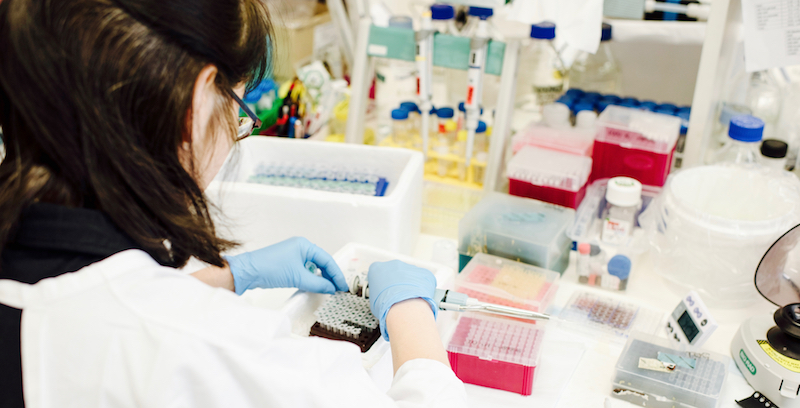
Prof Stephen Tong
MBBS PhD FRANZCOGStephen leads The Translational Obstetrics Group. His vision for bringing mothers and babies safely home is centred on h...
An ectopic pregnancy occurs when a fertilized egg implants and grows outside the womb, most commonly in the Fallopian tube. These pregnancies can cause life-threatening bleeding and may require emergency surgery and complete removal of the Fallopian tube. Mercy Perinatal are looking for ways to replace surgery with a safe, non-invasive medical treatment.
Ectopic pregnancy affects 1-2% of all pregnancies and is a leading cause of maternal death in early pregnancy. Currently, most ectopic pregnancies are treated with surgical removal of the affected Fallopian tube. However, some women with ectopic pregnancies can avoid surgery and have medical treatment with an injection of a drug (methotrexate) instead. Unfortunately, only a minority of women with an ectopic pregnancy are currently suitable for methotrexate treatment.
Ectopic pregnancies that are actively bleeding will always require surgery. However, in about 90-95% of ectopic pregnancies that present, the woman is stable without active internal bleeding at the time of diagnosis. These women would be ideal candidates for a medication-based treatment if we could increase the effectiveness of methotrexate, the only current drug treatment for this condition.

If we develop a reliable and safe medical treatment for ectopic pregnancy, we believe it could revolutionise management of this common and important condition. Women could then be given a choice of surgical removal of the Fallopian tube or medication-based therapy, with a potential reduction in surgical complications and costs.
Furthermore, surgery is not accessible in many developing countries. A simple medication approach may allow more women diagnosed with ectopic pregnancy in these areas to access timely treatment, saving many lives
We have been working hard to identify safe drugs that could be used to help women that are currently ineligible for medical management of ectopic pregnancy. Our laboratory research has identified the drug gefitinib as a promising adjunct to methotrexate therapy. We have already tested this concept of combination medical therapy in the clinic, offering women with ectopic pregnancies the addition of gefitinib to the standard methotrexate injection. Collaborating with University of Edinburgh, we have now completed three small clinical trials, all of which have confirmed this combination treatment to be highly promising.

We are now collaborating with University of Edinburgh (Professor Andrew Horne) and major clinical trial researchers across the United Kingdom on the GEM III study. This is a large-scale international randomised clinical trial that will be recruiting across 25-50 hospitals in The United Kingdom. If this trial yields a positive result, then this may become the way in which most ectopic pregnancies will be treated globally.